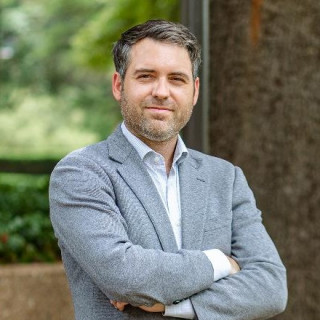Friday, August 23rd, 12 – 1:30 pm Eastern | 1 – 12:30 pm Central | 10 – 11:30 am Mountain | 9 – 10:30 am Pacific
A panel of leading administrative law professors will discuss how they have changed their administrative law or legislation-regulation courses in light of recent Supreme Court decisions in cases such as Loper Bright/Relentless, West Virginia v. EPA, and SEC v. Jarkesy.
Registration is Required

Harold Krent graduated from Princeton University and received his law degree from New York University School of Law, where he served as notes editor of the Law Review and garnered several awards for excellence in writing.
Krent clerked for the Honorable William H. Timbers of the U.S. Court of Appeals for the Second Circuit and then worked in the Department of Justice for the Appellate Staff of the Civil Division, writing briefs and arguing cases in various courts of appeals across the nation. He has been teaching full-time since 1987 and has focused his scholarship on legal aspects of individuals’ interaction with the government. His book, Presidential Powers, is a comprehensive examination of the president’s role as defined by the U.S. Constitution and judicial and historical precedents.
In addition, Krent has served as a consultant to the Administrative Conference of the United States, the World Bank, and the U.S. Department of Justice. Most recently, he served the Biden Administration during the first half of 2022 in the Office of Management and Budget in the General Counsel’s Office. He has also litigated numerous cases with students on behalf of indigent prisoners.
Krent joined the IIT Chicago-Kent faculty in 1994. He was appointed associate dean in 1997 and interim dean in 2002 before assuming the deanship on January 1, 2003. He continued is his role as dean until July 31, 2019.

Jordan Paradise researches and publishes on the intersection of law, science, and technology. Her primary focus is in the life science realm, examining legal and policy issues in the development and regulation of pharmaceuticals, medical devices and innovations in medicine. Recent interests span nanotechnology, synthetic biology, precision medicine, gene editing, and electronic cigarettes. Her publications have appeared in both peer-reviewed and legal publications.
Previously, Professor Paradise served as the Schering-Plough Professor of Law at Seton Hall University School of Law in New Jersey where she was a faculty member of both the Center for Health & Pharmaceutical Law & Policy and the Gibbons Institute for Law, Science & Technology. From 2005-2009, she was the Associate Director of Research & Education for the Joint Degree Program in Law, Health & the Life Sciences and the Consortium on Law and Values in Health, Environment & the Life Sciences at the University of Minnesota Law School. She was also an adjunct associate professor of law, a research associate in the Center for Bioethics, and the faculty editor-in-chief of the Minnesota Journal of Law, Science & Technology during her time at the University of Minnesota.

K. Sabeel Rahman is a Professor of Law at Cornell Law School. He is also a co-founder and faculty co-chair of the Law and Political Economy Project. His academic research focuses on issues of democracy, governance, economic power, political economy paradigms, racial equity, and inequality. He works extensively with a range of think tanks, advocacy organizations, and foundations to develop novel approaches to addressing these issues in practice.
From 2021-2023, he served in the Biden-Harris Administration where he led the Office of Information and Regulatory Affairs (OIRA). At OIRA, he oversaw the policy review and approval of all significant federal regulations and played a lead role in the Administration’s efforts on equity, data and information policy, and reforming regulatory analysis. From 2018-2021, he served as President of Demos, a national racial justice think tank and advocacy organization that played a key role in combatting voter suppression and developing and mainstreaming major policy ideas from climate justice to student debt relief to energy democracy.
He is the author Democracy Against Domination (Oxford University Press, 2017), and Civic Power (with Hollie Russon Gillman, Cambridge University Press, 2019). His popular writings have appeared in venues like The Atlantic, The New Republic, The Boston Review, Dissent, and The Washington Post.

Kate Shaw joined Penn Carey Law in January 2024 from the Benjamin N. Cardozo School of Law, where she was also Co-Director of the Floersheimer Center for Constitutional Democracy.
Shaw is a constitutional law scholar who has also taught courses in administrative law and legislation and a seminar on the Supreme Court. She was a Visiting Professor at Penn Carey Law during the spring of 2023.
Her academic work focuses on executive power, the law of democracy, the Supreme Court, and reproductive rights and justice. She previously worked in the Obama White House Counsel’s Office and served as a law clerk to U.S. Supreme Court Justice John Paul Stevens and the Honorable Richard Posner of the U.S. Court of Appeals for the Seventh Circuit.
Shaw’s scholarly work has appeared in the Harvard Law Review, Columbia Law Review, Georgetown Law Journal, Cornell Law Review, Michigan Law Review, and Texas Law Review, among other places.
Her popular writing has appeared in the New York Times, the Atlantic, Time, the Washington Post, and Slate. She is a co-host of the Supreme Court podcast Strict Scrutiny, a contributor with ABC News, a Contributing Opinion Writer with the New York Times, and a Public Member of the Administrative Conference of the United States.

Daniel E. Walters is an Associate Professor of Law at the Texas A&M University School of Law. Prior to joining the Texas A&M faculty, he was an Assistant Professor of Law at Penn State Law, and before that a Regulation Fellow at the University of Pennsylvania Carey School of Law. He earned a JD from the University of Michigan Law School and a PhD in political science from the University of Wisconsin-Madison. He clerked for the Honorable M. Margaret McKeown on the U.S. Court of Appeals for the Ninth Circuit. He is also admitted to practice law (but inactive) in Illinois.
Professor Walters writes about administrative and regulatory law, with a particular focus on the implications of democratic theory for the administrative state, on public participation in administrative processes, on deference doctrines, on empirical studies of administrative behavior, and on the court-agency relationship. He also writes about climate change and energy law, with an emphasis on electric transmission lines, grid governance, the food-climate nexus, and climate legislation. His articles have appeared in many of the top journals in law and public administration, including the Yale Law Journal, the Stanford Law Review, the Michigan Law Review, the Cornell Law Review, the Georgetown Law Journal, the University of Pennsylvania Law Review, the Southern California Law Review, the Emory Law Journal, the Iowa Law Review, the Harvard Environmental Law Review, the Administrative Law Review, Ecology Law Quarterly, and the Journal of Public Administration Research & Theory (JPART), among others. He is a co-editor, with Cary Coglianese, of a forthcoming book: Regulation in a Turbulent Era. He is a former winner of the Richard D. Cudahy Writing Competition on Administrative & Regulatory Law (student category) and the Beryl A. Radin Award for best article in JPART, and his work has been included in the Environmental Law Institute’s Environmental Law & Policy Review’s list of top environmental law review articles.